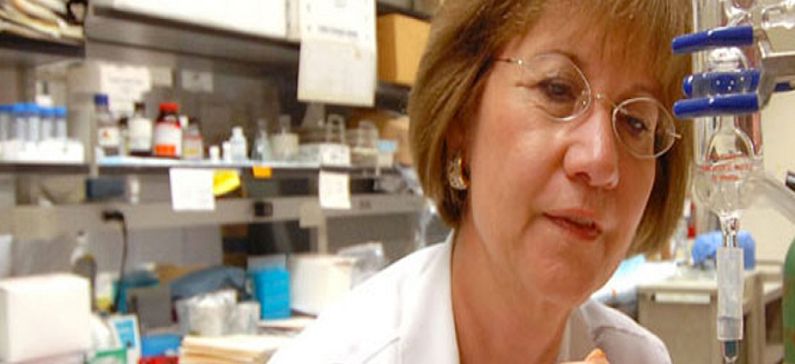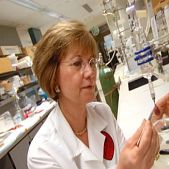
Opened a new front in the design of therapeutic treatments for heart failure
Dr. Evangelia Kranias serves as Research Professor and Director of Cardiovascular Biology in the Department of Pharmacology and Cell Biophysics at the University of Cincinnati. Dr. Kranias interests in molecular mechanisms and signalling pathways regulating calcium homeostasis in cardiac muscle with emphasis in heart failure, the single leading cause of death and the only disease that is increasing in incidence and prevalence with an overall five-year mortality rate of 50%.
She was born in Thessaloniki, Greece. She obtained her Ph.D. in Molecular Biology and Biochemistry from Northwestern University in 1974. She was a postdoctoral fellow and Instructor at Northwestern University Medical School from 1974-1977 and subsequently she joined the faculty at the University of Cincinnati College of Medicine in 1978.
Dr. Kranias provided the first evidence on the key role of phospholamban in the regulation of cardiac contractility and showed that controlling the levels of phospholamban alone, it is possible to fine-tune the heart’s pumping action. This key discovery opened a new front in the design of therapeutic treatments for heart failure.
Current pharmacological treatment of this devastating condition focuses on symptoms rather than the underlying cellular mechanisms responsible for weakness of the heart muscle. Cellular hallmarks of cardiac failure include marked ventricular hypertrophy or dilation and abnormal cytosolic calcium handling, associated with impaired contractility.
The overall goal of her research program is to elucidate the regulatory mechanisms and signalling pathways underlying calcium homeostasis in cardiac muscle and the alterations in these pathways underlying the heart failure phenotype.
Her research team’s current approach is to use Molecular Genetics and generate mouse models with alterations in the expression levels of key Ca-handling proteins to determine their physiological and pathophysiological significance in vivo. These genetically altered models are characterized at the molecular, biochemical and physiological levels, using state of the art techniques, including Genomics, Proteomics and Bioinformatics.
Dr. Kranias has received many awards and honours and has served on several editorial boards and review committees.
She has published more than 200 scientific articles in peer-reviewed journals.
She has been elected as a Council Member to several societies and as a Founding Fellow of the International Society of Heart Research (FISHR). She also serves as consultant researcher of Molecular Biology at the Academy of Athens Foundation of Biomedical Research, Greece, consultant researcher of the Cardiovascular Research Center, University of La Plata Medical School, Argentina and adjunct Professor at Kwangju Institute of Science & Technology, Korea.












